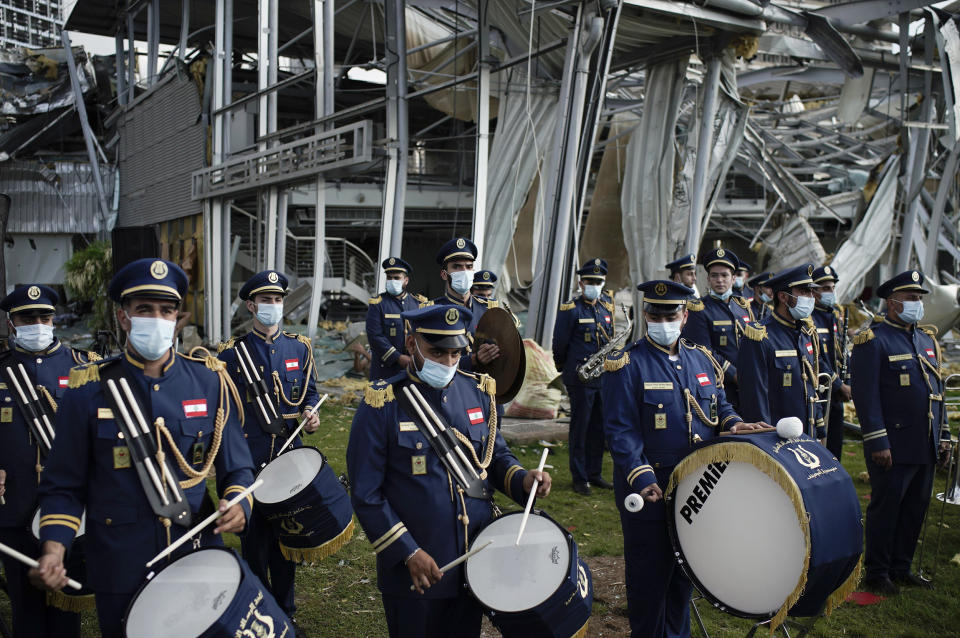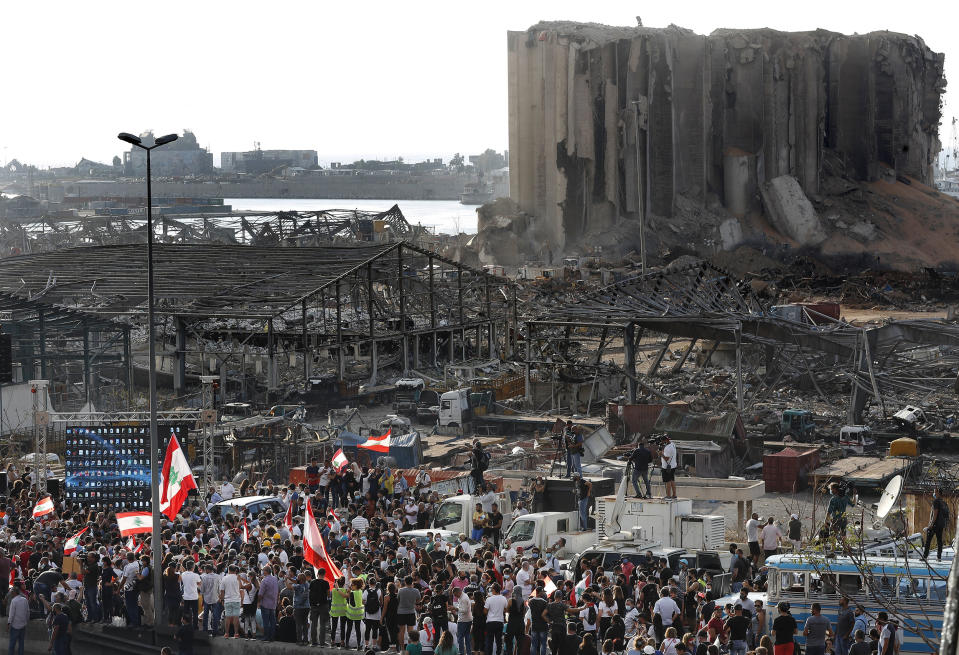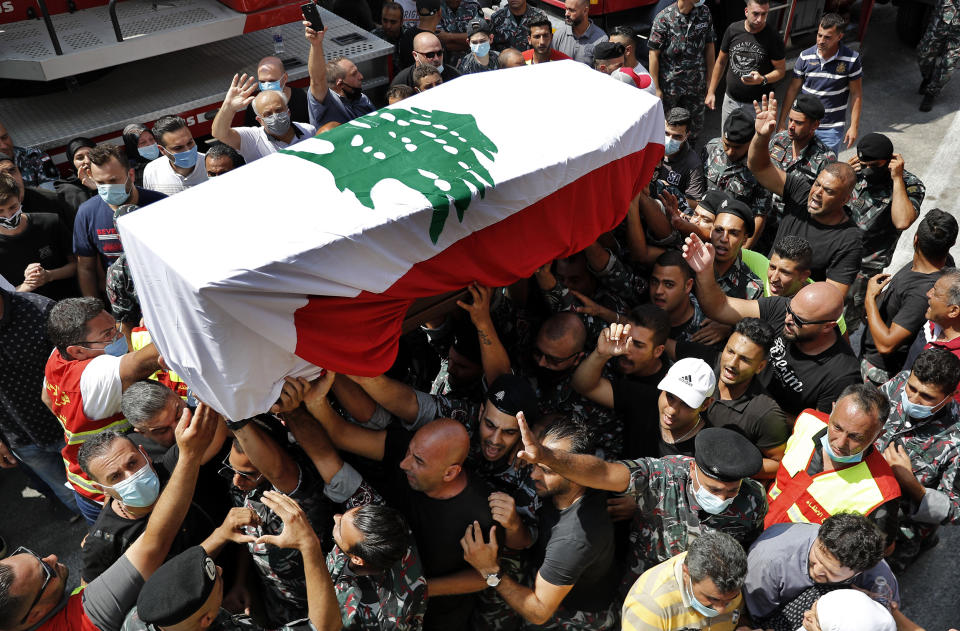A week after blast, Beirut pauses to remember the dead
BEIRUT — The shattered city of Beirut on Tuesday marked a week since the catastrophic explosion that killed at least 171 people, injured thousands and plunged Lebanon into a deeper political crisis.
Thousands of people marched near the devastated port, remembering those who died in the most destructive single blast to hit the country.
They observed a minute of silence at 6:08 p.m. local time (11.08 a.m. ET), the moment on Aug. 4 that thousands of tons of ammonium nitrate exploded in the city's port where it had been stored for more than six years, apparently with the knowledge of top political and security officials.

At that moment Tuesday, church bells tolled and mosque loudspeakers recited a call to prayer.
Hundreds marched through the streets of the hard-hit neighborhood of Gemayze carrying portraits of the dead before a candlelight vigil after dusk near the port.
“He knew,” read a poster bearing President Michel Aoun's picture.

Aoun, in office since 2016, said Friday he was first told of the dangerous stockpile nearly three weeks ago and immediately ordered military and security agencies to do “what was needed.” But he suggested his responsibility ended there, saying he had no authority over the port.
“I’m very furious, I’m enraged, I’m angry, I’m sad. I’m hopeless,” said Anthony Semaan, in his 20s, who said he came to pay respects to the victims.
Like others, he said the government’s resignation makes no difference.
“First of all, there are questions that need to be answered. And second, there are other rats that need to be brought down first, and when they are brought down then maybe we can start thinking about the future,” he added.
Young people carried placards, each one printed with the names of one dead in a red and a green cedar, Lebanon’s national symbol, and sat on stairs in the Gemayze district, facing the port. Elsewhere in the city, burials of the dead continued.
The explosion has fueled outrage against top political leaders and security agencies, and led to the resignation of the government on Monday. In the wake of the disaster, documents have come to light that show that top Lebanese officials knew about the existence of the stockpile in the heart of Beirut near residential areas, and did nothing about it.
It still wasn't clear what caused the fire in a port warehouse that triggered the explosion of the chemicals, which created a shock wave so powerful it was felt as far away as the island of Cyprus more than 180 miles across the Mediterranean.
Outgoing Health Minister Hamad Hassan said the blast killed a total of 171 people, with between 30 and 40 still missing. Of the injured, 1,500 needed special treatment while 120 remain in intensive care, he said.
The explosion damaged thousands of apartments and offices in the capital. It comes amid an unprecedented economic and financial crisis facing the country since late last year.
Meanwhile, efforts to form a new government got underway a day after Prime Minister Hassan Diab resigned. His government, which was supported by the militant group Hezbollah and its allies, unraveled after the deadly blast, with three ministers announcing they were quitting.

Lebanese have demanded an independent Cabinet not backed by any of the political parties they blame for the mess they are in. Many are also calling for an independent investigation into the port explosion, saying they had zero trust in a local probe.
Lebanese officials have rejected an international investigation. The government, in the last decision it made before resigning, referred the case to the Supreme Judicial Council, Lebanon's top judicial body, which handles crimes infringing on national security as well as political and state security crimes.

